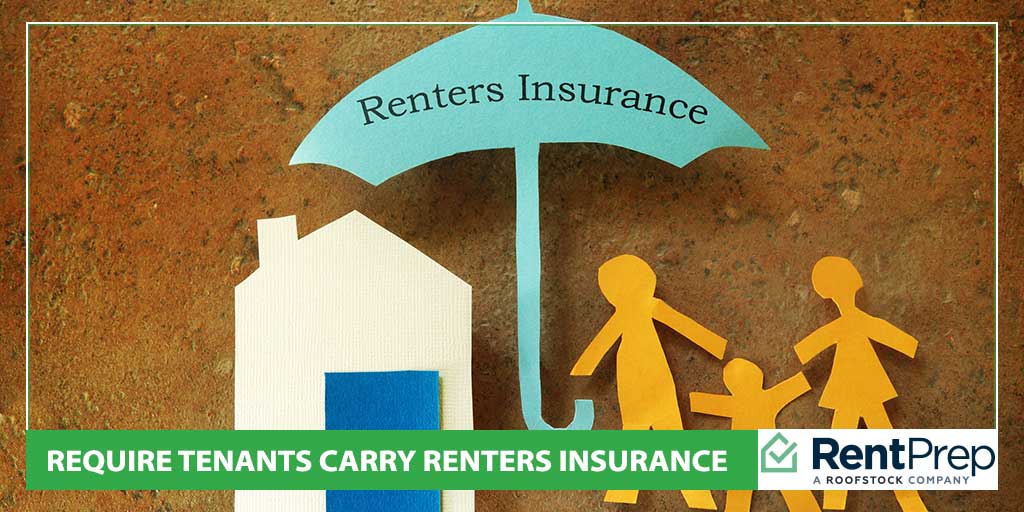
Theft, vandalism, smoke, water or fire—all these can cause damage to a tenant’s personal property. Does the law allow landlords to require tenants to get renters insurance?
Renter’s insurance is a specific type of policy that covers theft and damage to a tenant’s personal property. It differs from your property insurance, which covers damage and loss to the building itself. Many landlords are learning that it’s a wise idea to require their tenants to carry renter’s insurance to ensure their belongings will be replaced if something should happen or if the tenant’s actions cause damage someone else’s property.
What You Can Require with Renter’s Insurance
If your lease agreement specifies that all tenants must carry a verifiable renter’s insurance, then you can require any tenant who signs that lease agreement to carry a policy. Otherwise, the tenant would be violating the terms of the lease agreement. Because it is a condition of the lease agreement and it is a reasonable request, the law supports landlords who require tenants to carry a policy. You can also specify the minimum level of coverage as long as it is considered reasonable.
When You Can’t Require

Landlords cannot require tenants to get a renter’s insurance policy if the lease agreement does not specify it. In other words, you cannot ask tenants to carry a policy at any random time if they did not agree to it via the terms of the lease. Landlords cannot suddenly require it or threaten eviction if tenants don’t comply.
That doesn’t mean you can’t require renter’s insurance eventually—just include it in the lease agreement when it is time to renew. If the tenants agree to the revised lease agreement, they are subject to the terms of the agreement and must comply by getting a policy.
You are also not allowed to specify that your tenant’s carry a policy through a particular agency. While you can provide your tenants with a list of reputable insurance agencies in your area, as long as the tenant shows proper proof of coverage, it must suffice.
Proof of Renters Insurance
Always require proof of insurance from your tenants, either before they move into the rental unit or after a reasonable deadline, such as 30 days from signing the lease agreement. The tenants can ask their insurance agent to send a letter of proof or a copy of a summary of the policy, known as a declarations page.
If the tenant cannot provide you with proof of insurance, don’t let them sign the lease agreement. If you’ve given a deadline after signing the agreement and the tenant has no proof of coverage, you can serve them with a comply or quit notice.
Even though it may seem burdensome to the tenant to carry a renters insurance policy, they are not expensive and it’s in their best interest to ensure that their possessions are protected in an emergency.

